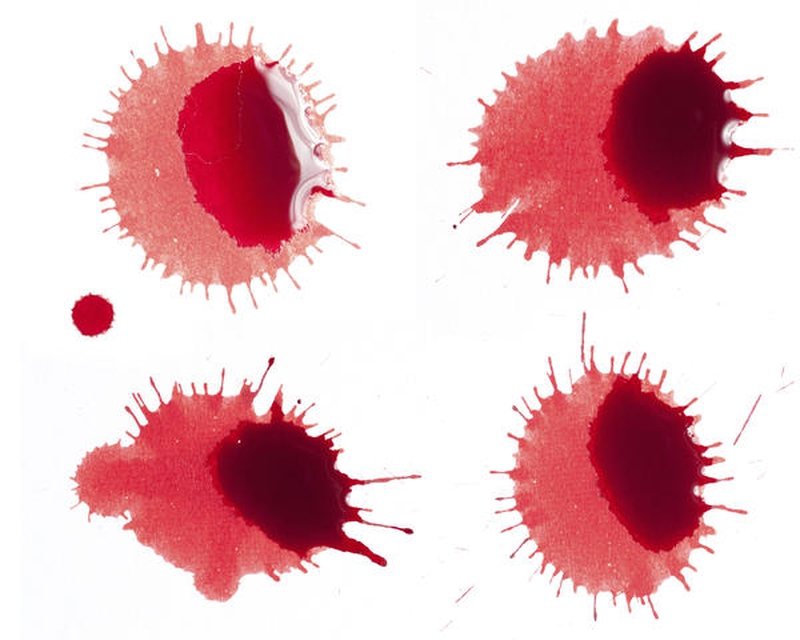Commonly, your period continues for 3-5 days and you are going to have your next period again in 28-30 days. The time between two subsequent period is called a menstrual cycle. In most cases, you will not experience bleeding or spotting during the break period. However, some women may have bleeding 10 days after period ended or have light brown bleeding, also known as spotting, in between periods. Bleeding or spotting could be due to a number of reasons, some are normal and others may require medical attention. Let's find out more about it.

Causes of Bleeding 10 Days After Period Ended
You See Old Blood
If you notice bleeding 10 days after period ended, this could be nothing more than old menstrual blood that your body could not expel during normal monthly period. You notice this type of bleeding when some amount of tissue is there inside the uterus.
You Have an Infection
Bleeding after your regular monthly period could be a sign of yeast infections or bacterial infections. If that bleeding is indeed due to an infection, you are likely to notice a foul smell as well. It is important to see your doctor for further evaluation.
You Have in Rough Sexual Contact
Bleeding could also occur due to deep penetration during a rough or vigorous sexual contact. There is usually very light bleeding mainly because of minor physical injury. If it causes bruises to your cervix, it is possible to experience pain even after the act.
You Have Irregular Menstrual Cycle
Bleeding a few days after period can be an issue usually experienced by teenage girls. That happens because their bodies are still adjusting to their menstruation. It may continue to stay the same for a couple of months, but it can persist up to a year or more.
You Take Oral Contraceptives
You are going to experience bleeding or spotting when there is a hormonal imbalance, and that can happen when you take birth control pills. It is possible to experience bleeding just after starting or discontinuing the use of oral contraceptives. Once your body adjusts to the change, you bleeding or spotting will cease as well.
You Have Polyps or Uterine Fibroids
Some women can develop non-cancerous cells called polyps in the uterus. Your bleeding could be the result of one of these polyps bursting. Similarly, uterine fibroids can also lead to bleeding. It is important to have fibroids removed immediately if they grow larger.
You Experience Ovulation Bleeding
You may experience bleeding at the time you ovulate. This normally happens midway through your menstrual cycle. What causes ovulation bleeding is not clear yet, but some experts believe that it happens when the follicle ruptures within the ovary. This type of bleeding is very light and will not last for very long. If it is ovulation bleeding, you may also have light cramping, especially on one side of the abdomen.
You Are Having Implantation Bleeding
Midway through your menstrual cycle, there will be an increase in the levels of progesterone and estrogen that causes the ovary to release an egg. If fertilization takes place, the egg attaches itself to the uterine lining, which makes you bleed a little. This is known as implantation spotting or implantation bleeding. As many women do not know that they have conceived, they feel concerned about the bleeding that takes place after implantation. The bleeding is not severe and may be red, pink, or brown in color. It is quite normal and is never a cause for concern.
How to Deal with Bleeding After Period
Always take oral contraceptives as per the instructions of your doctor. These pills certainly help regulate your hormonal levels, but you should never start or stop without first asking your doctor. It is also important to take your pill daily at the same time without fail.
Avoid aspirin as much as possible. It is better to stop taking it but you should at least limit the intake of aspirin to prevent bleeding. It is a blood thinner and increases your risk of experiencing bleeding between periods.
Go for pap smears at regular intervals. This helps identify a problem even when it is in its early stages. This increases your chances of recovery.
Pay attention to your body weight. You should take steps to ensure your body weight is within the normal range or else you will be at an increased risk of uterine cancer.
Talk to your doctor about an alternative to oral contraceptives. Sometimes, a change in your birth control method helps prevent bleeding or spotting after period. Bleeding is also an issue for women using intrauterine devices.
Take steps to keep stress under control. You should learn to manage stress better. Emotional stress can affect your menstrual cycle and result in irregular bleeding. You may consider using relaxation techniques, such as yoga, meditation, aerobics, and deep breathing to calm your nerves.
Few Things That You Should Know
Spotting after your period may indicate pregnancy, but it is not always true. It may or may not be implantation bleeding, so you may want to take a pregnancy test to be sure.
You can become pregnant only after ovulation and successful fertilization, and the process usually starts at least 10 days after your menstrual cycle. Therefore, the possibility of you becoming pregnant immediately after your monthly period is quite low.
Spotting or bleeding 10 days after period ended is not associated with early miscarriage, unless you experience heavy bleeding that is accompanied with cramps.
View All Comments /Add Comment